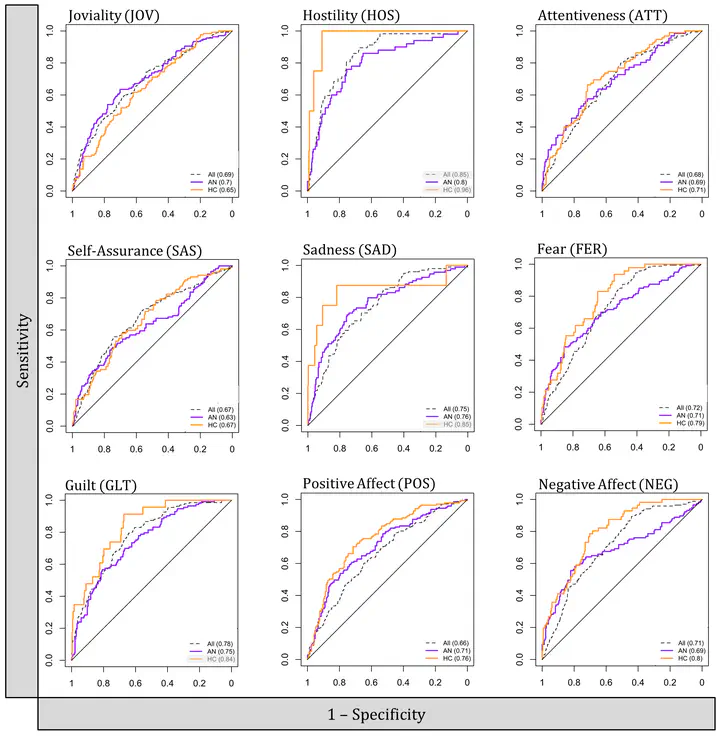A machine learning investigation into the temporal dynamics of physical activity‐mediated emotional regulation in adolescents with anorexia nervosa and healthy controls

Abstract
Objective: Anorexia nervosa (AN) is commonly experienced alongside difficulties of emotion regulation (ER). Previous works identified physical activity (PA) as a mechanism for AN sufferers to achieve desired affective states, with evidence towards mitigation of negative affect. However, temporal associations of PA with specific emotional state outcomes are unknown.
Method: Using lag‐ensemble machine learning and feature importance analyses, 888 affect‐based ecological momentary assessments across N = 75 adolescents with AN (N = 44) and healthy controls (N = 31) were analysed to explore significance of past PA, measured through passively collected wristworn actigraphy, with subsequent self‐report momentary affect change across 9 affect constructs.
Results: Among AN adolescents, later lags (≥2.5 h) were important in predicting change across negative emotions (hostility, sadness, fear, guilt). AN-specific model performance on held‐out test data revealed the holistic “negative affect” construct as significantly predictable. Only joviality and self-assurance, both positively‐valenced constructs, were significantly predictable among healthy‐control‐specific models.
Discussion: Results recapitulated previous findings regarding the importance of PA in negative ER for AN individuals. Moreover, PA was found to play a uniquely prominent role in predicting negative affect 4.5–6 h later among AN adolescents. Future research into the PA‐ER dynamic will benefit from targeting specific negative emotions across greater temporal scales.